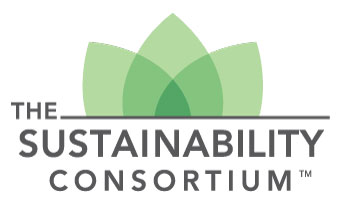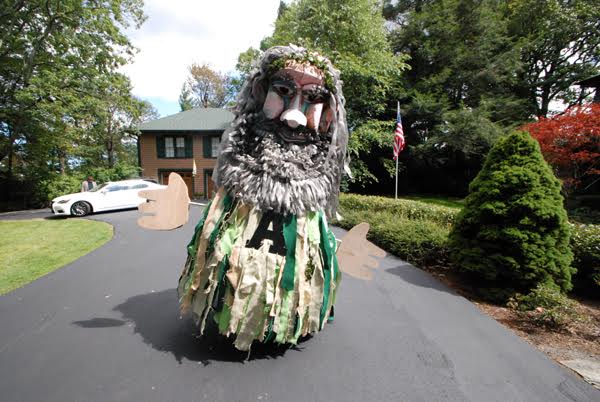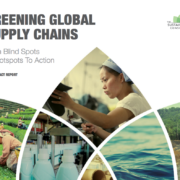Bobby Kennedy Jr. Caps ASU’s Walker College ‘Business for Good’ Summit in Blowing Rock
News from HCPress.com
By Jesse Wood on September 11, 2017 at 6:45 PM
The Walker College of Business at Appalachian State University held its third annual Business for Good summit on Friday that concluded with a keynote speech from Bobby Kennedy Jr. at a reception at the Dunston residence in Blowing Rock.
The Business for Good summit’s purpose is to show how sustainable business practices relate to us all and makes good business sense. The reception in Blowing Rock began with the announcement of the Green E Award.
Dr. Jim Westerman, director of Sustainable Business at Appalachian State, announced that Dr. Tammy Kowalczyk, a professor at Appalachian State, and Leigh and Pam Dunston, are this year’s Green E Award recipients. Westerman noted that Kowalczyk and the Dunstons have advanced the mission of sustainability at Walker College and the entire Appalachian State campus.
“JFK once said, ‘The problems of the world cannot possibly be solved by skeptics or cynics whose who’s horizons are limited by obvious realities. We need men to dream of things that never were,’” Westerman said. “These individuals embrace that spirit.”
Bobby Kennedy Jr.’s speech began with his first foray into environmental advocacy. His career in this field began by working for fisherman along the Hudson River to legally fight General Electric, which dumped toxic PCBs (polychlorinated biphenyls) into the river for decades.
“In 1973, some of the fish were declared illegal to sell and by the time I started working with them in 1984, we went from representing 2,000 commercial fisherman on the Hudson to 200 in a matter of a couple of years. Then 25 and five or six years later to today only one or two people are still on the river,” Kennedy said.
He noted that while these fishermen wanted to pass on the family business and fishing heritage to their children, those kids are now working other jobs because the “fish are so loaded up with PCBs, it’s dangerous for a human being to eat them.”
Kennedy mentioned that the public is constantly told that they have to choose between economic prosperity and environmental protection.
“That’s a false choice in 100 percent of the situations. Good environmental policy is identical to economic policy,” Kennedy said. “If we want to measure our economy – and that’s how we ought to measure it – based upon how it produces jobs and dignity over the generation, over the long term and how it preserves the value of assets in our communities.
“On the other hand, what the big polluters want us to do, the Koch brothers and others, which is to treat the planet as if it is a business in liquidation and convert our natural resources into cash as quickly as possible and have a few years of pollution based prosperity, we can generate instantaneous cash flow and the illusion of a prosperous economy and make a few people billionaires by impoverishing the rest of us. But our children are going to pay for our joyride.”
Kennedy said that the hidden subsidizing of the fossil fuel industries, from related healthcare, disaster cleanups and other “injuries of oil addiction,” isn’t the “true free market” speaking because the landscape is being undervalued.
“In a true free market, you can’t make yourself rich without making your neighbors rich and without enriching your community, what polluters do is making themselves rich by making everyone else poor. They raise standards of living for themselves by lowering the quality of life for everybody else and they do that by escaping the discipline of a free market,” Kennedy said.
“You show me a polluter; I’ll show you a subsidy. I’ll show you a fat cat using political clout to escape discipline of a free market and force the public to pay its production costs. When General Electric dumped PCBs into the Hudson, it was externalizing one of the costs of production and that externalized cost ended up being shouldered by my clients who had to pay the price and by society as well.”
Kennedy mentioned that the entire U.S. energy grid could be powered by sunlight in a 75 square mile area in the Southwest, and the entire North American energy grid can be powered by harnessing the wind of just three states, North Dakota, Montana and Texas.
He noted that obstacles include the “political payoffs” and company’s being reluctant to walking away from $23 trillion of oil and coal infrastructure that currently exists. He noted that another impediment is the country’s electrical grid is “archaic, antiquated” and isn’t capable of transmitting energy long distances or isn’t “smart” enough to work around peak events. His last reason was that the “rules encourage bad behavior and inefficiencies.”
Kennedy noted that the government is capable of building infrastructure for new industries. He recalled the creation of railways, highways, the Internet and telecommunications infrastructure.
Kennedy talked about the cost of information these days and how you can go on the Internet and find pretty much anything about any topic you want to do, and it’s essentially free. He noted the same with the cost of long-distance phone calls.
“That’s what will happen for electrons as soon as we build a grid for [renewable] electricity in this country,” Kennedy said.
Prior to the reception, the daylong summit featured a number of guest speeches and a “lunch and lightning round” at Chetola Resort before moving to Pam and Leigh Dunston’s residence. The lightning round featured Net Impact Club International Food Solutions Challenge; Vixter; Impact Clinic; and AppLab.
Speakers included Sarah Lewis, managing director of members and implementation at The Sustainability Consortium; Andrew Hutson, senior director at the Fishery Solutions Center, the Environmental Defense Fund; Bob Inglis, six-term U.S. House of Representatives and executive director of republicEN, Roian Atwood, director of Sustainability VF Jeanswear; and Philip Henson Sr., manager of Energy & Environmental Sustainability Hanesbrands.





